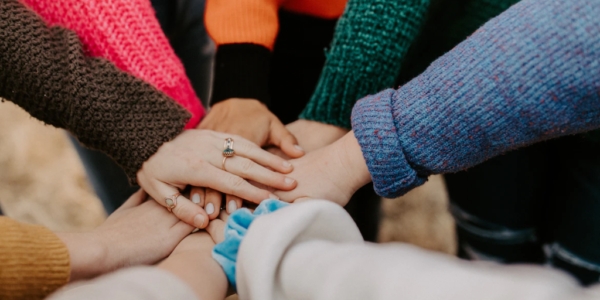Teamwork is a skill that all employers look out for – they want to know you can work well with the team! Here are some top tips for showing off your teamwork skills in job interviews….
The vast majority of jobs involve working with other people, and being able to do so well is a vital skill to succeed in work and life. That’s why so many job descriptions list “teamwork skills” as an essential or highly desirable attribute for applicants.
Teamwork is considered a soft skill, putting it in the same category as communication, problem solving, leadership, and so on. (This differentiates it from hard skills such as understanding how to operate a particular piece of machinery or programme a computer.)
Soft skills are notoriously difficult to showcase well on CVs and in interviews. Fortunately, there are a few easy tricks you can use to show prospective employers that you are a team player. Read on to learn about a few of the most effective.
Use the STARRS Technique
One of the most common types of interview questions is the “tell me about a time when…” variety, in which you are expected to tell a short story that illustrates your skills.
It is easy to go off topic, ramble, or give too much or too little information if you’re nervous. Following a simple method known as STARRS – which stands for Situation, Task, Action, Result, Reflection, Strengthen – will help to keep you on track.
Here’s how it works:
SITUATION: Set the scene, briefly talking about what happened and who was involved
TASK: What did the task, role, or problem involve?
ACTION: What did you do to address the task or solve the problem?
RESULT: How was the situation resolved by your actions?
REFLECTION: What went well and what could have gone better?
STRENGTHEN: What, if anything, might you do differently next time and what you learned from the situation.
Don’t Focus Solely on Yourself
A job interview is about you, your skills, and assessing whether you and the job are a good fit for one another. However, if you want to demonstrate teamwork skills, it is also important to talk about how you have worked with other people in the course of your career so far.
For example, you might use phrases like:
- “My team and I worked together to…”
- “I collaborated with colleagues in another department on…”
- “I was a member of the team that… and my role within that was…”
It is important to sound positive about the opportunities you have had to work collaboratively, and about the contributions that others made to the overall success of a project or situation. Good team players are not jealous or competitive, and are quick to give others credit where it is due.
Do Not Speak Negatively About Others
Sometimes, you may have had to work with people you did not particularly care for. Perhaps a boss, manager, or colleague rubbed you the wrong way, or perhaps somebody else dropped a ball that then created extra work for you. It is human nature to sometimes be irritated by other people. However, even if your feelings are entirely warranted, an interview is not the time to express them!
When you speak about other people in your interview, follow the golden rule: if you cannot say something kind or at least constructive, say nothing at all. When you mention others, it should always be in a positive context. Employers do not want to risk hiring someone who is difficult to get along with or willing to badmouth bosses or team members. And since they have only your perspective to go on, the risk of coming across as bitter or unkind is too high.
Be Specific
When you are giving examples that illustrate your experience and soft skills, it is important not to be vague. Instead, be as specific as possible to add colour and credibility to your answers.
For example, if you are talking about how you collaborated with colleagues in a different department, explain what that looked like. Did you hold weekly check-in meetings, seek input from those with a diverse array of knowledge and experience, use particular project collaboration tools, or step up and go above and beyond the call of duty to help others meet a deadline? All of these things demonstrate a strong working knowledge of how good teamwork functions in practice.
Don’t Forget About Hobbies, Volunteering, and Other Activities
If you have little or no work experience, it can be difficult to find examples to illustrate your skills in interviews. But not all of your examples have to come from the world of work. Hobbies, volunteering, and extracurricular activities all count.
For example, you might have been part of a sports team, performed in a play, played in a band or orchestra, or worked with a team of other volunteers on a charitable project. All of this counts as valuable teamwork experience and you can absolutely use it in your interview.
Demonstrate Your Skills in the Interview
Great teamwork is actually made up of a number of different skills including communication, empathy, active listening, respect, and reliability. You can demonstrate all of these, and more, simply through your behaviour in the interview.
Arrive punctually, having followed any pre-interview instructions that were provided to you (such as preparing a portfolio or presentation.) Be polite and courteous to everyone you meet. Listen carefully, do not interrupt, use body language to convey interest and understanding, and ask thoughtful follow-up questions where necessary.
All of these will show the interview panel that you are a pleasant, thoughtful, and polite person who will fit in well as a member of their team.








